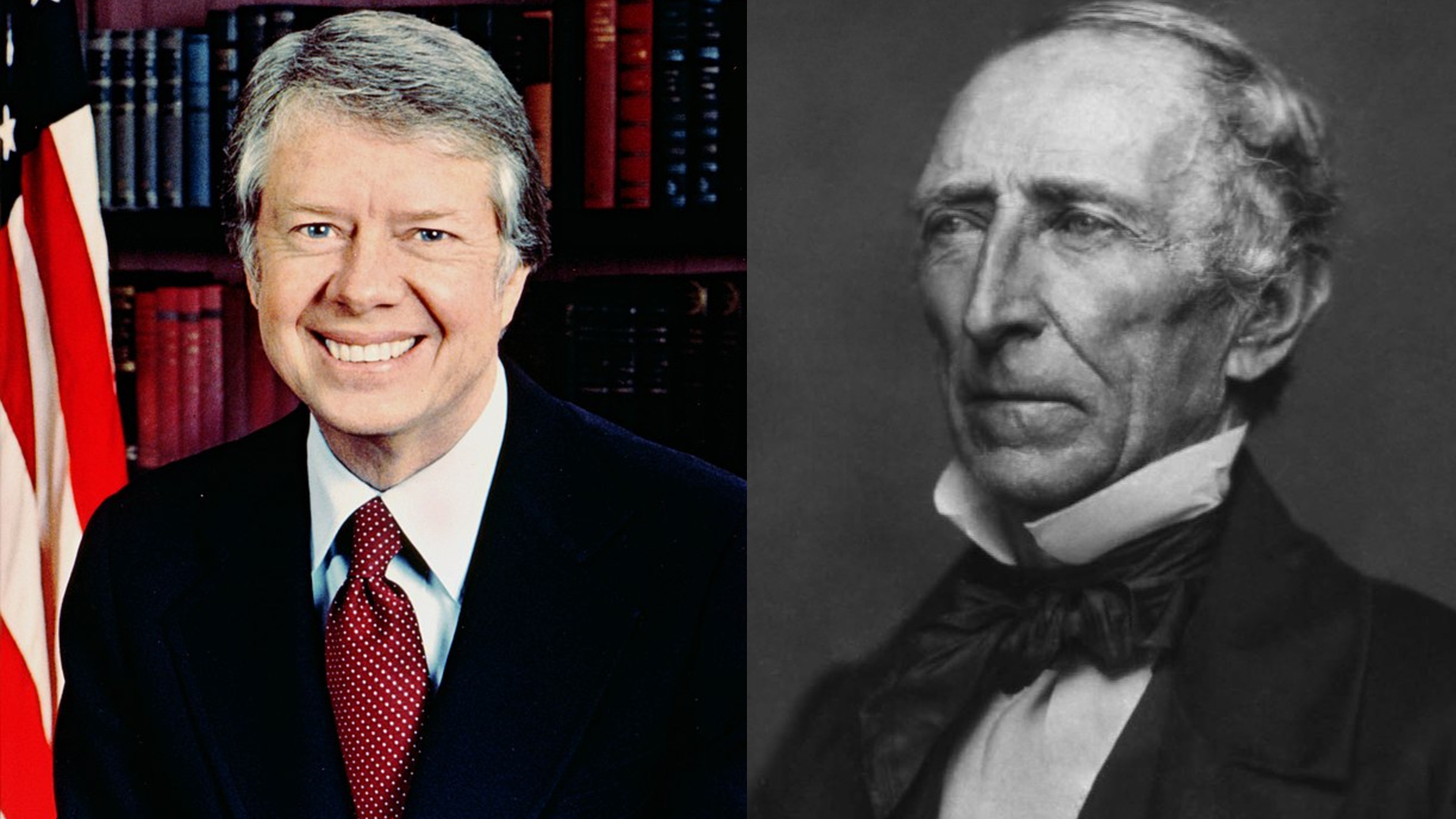When Predictions Fell Flat
Making predictions about the future feels like a game everyone thinks they can win. Experts and everyday folks have all made confident calls about what’s “definitely” coming next—until reality showed up with different plans. Some of these forecasts were based on the technology of the time, others on pure optimism. The funny part? Many were seen as a sure thing at the time. So, here are 20 bold predictions that turned out to be completely wrong.
 Aeronutronic Division of Philco Corp, under contract by NASA on Wikimedia
Aeronutronic Division of Philco Corp, under contract by NASA on Wikimedia
1. No One Will Ever Need A Personal Computer
In 1977, Ken Olsen, head of Digital Equipment Corporation, confidently declared that "There is no reason anyone would want a computer in their home." That same year, Apple II hit the market, and by 1998, over half of U.S. homes had computers.
2. The World Will End In 2012
When the Mayan Long Count calendar ended on December 21, 2012, some took it as a doomsday warning. New Age authors spun tales of cosmic upheaval, and NASA issued calm reassurances. However, the next day arrived—quiet, ordinary, and apocalypse-free.
3. Horses Will Always Rule The Roads
At the turn of the 20th century, New York City relied on over 100,000 working horses. Even early automobiles seemed no match, as they were prone to breakdowns. But city streets were drowning in manure, and Henry Ford’s affordable Model T shifted the balance.
4. Television Won’t Last Beyond Six Months
In 1946, film executive Darryl Zanuck predicted people would tire of staring at a wooden box every night. Instead, TV ownership skyrocketed—from 5 million sets in 1950 to over 60 million by 1970—driven by hit shows.
5. Nuclear Power Will Make Electricity Cheaper
The 1950s buzzed with atomic optimism, and in 1954, Lewis Strauss of the Atomic Energy Commission claimed nuclear power would be practically free. Early submarine reactors fueled the optimism, but soaring construction costs slowed progress. Today, nuclear power provides about 9% of global electricity—far from free.
6. Airplanes Will Never Replace Ocean Liners
Ocean liners once ruled the Atlantic, as their luxury was unmatched in long-distance travel. The Titanic disaster even deepened public trust in them. Later, Charles Lindbergh’s 1927 solo flight changed the conversation, and by the 1950s, jetliners like the Boeing 707 had claimed the crown.
 Pacific and Atlantic photos inc. on Wikimedia
Pacific and Atlantic photos inc. on Wikimedia
7. The Internet Will Collapse By 1996
As internet use surged in the mid-1990s, experts warned of a looming traffic apocalypse. Engineers countered with smarter routing protocols and larger servers, and instead of collapsing, the internet’s user base exploded year after year.
8. Space Travel Will Be Routine By 2000
After the 1969 moon landing, people pictured lunar hotels and weekend getaways on Mars—because why not? NASA even sketched out Mars missions for the ’80s. Then budget cuts brought everyone back down to Earth, literally.
9. Y2K Will Trigger Global Chaos
The panic was real, as computers stored years as two digits, so “00” looked like 1900 to their systems. Experts warned of banking meltdowns and utility failures. Companies spent millions on fixes, and then midnight struck with almost nothing going wrong at all.
 Sean MacEntee from Monaghan, Ireland on Wikimedia
Sean MacEntee from Monaghan, Ireland on Wikimedia
10. Email Will Never Replace Traditional Mail
Back in the late 1980s, email demanded specialized terminals, so letters still ruled for bills, legal notices, and invitations. Then AOL, Hotmail, and Yahoo Mail arrived, and by the 2000s, personal letter writing had nearly vanished.
11. Mobile Phones Will Only Appeal To A Niche Market
Those first mobile phones weighed over two pounds each, with batteries that barely lasted an hour of talk time. Then came the Nokia and Ericsson revolution, shrinking phones to something you could actually carry without a gym membership.
12. Humans Will Have Colonies On Mars
Rocket pioneer Wernher von Braun once imagined crewed Mars flights happening in the 1980s, and sci-fi writers filled books with bustling cities under glass domes. Reality proved less cinematic, as no human has ventured beyond the Moon.
13. Movies Will Be A Passing Fad
In 1915, many critics dismissed film as a novelty. Even Nickelodeon offered brief, silent reels for a nickel, hardly seen as high art. Then Hollywood’s Golden Age arrived with sound and Technicolor, and currently the global box office pulls in tens of billions each year.
14. We’ll All Be Eating Food Pills By The 21st Century
The idea took off at the 1930s World’s Fair displays, where futurists imagined cooking replaced by tidy little capsules. Today, pills are mostly for astronauts and supplements, while the rest of us stick to fresh, varied meals.
 Michał Parzuchowski on Unsplash
Michał Parzuchowski on Unsplash
15. Supersonic Passenger Jets Will Dominate Air Travel
When Concorde debuted in 1976, flying at Mach 2 and crossing New York to London in under three and a half hours, it seemed the future had arrived. Yet only 14 ever flew commercially, with round-trip tickets topping $10,000.
16. Bitcoin Is Just A Passing Trend
Two pizzas for 10,000 BTC—that 2010 purchase became the internet’s favorite cautionary tale. At the time, many dismissed Bitcoin as “play money” for tech enthusiasts, and the Silk Road scandal didn’t help. By 2021, though, a single coin was worth tens of thousands.
17. The World Will Run Out Of Oil By The End Of The 1980s
During the 1973 oil embargo, experts warned reserves would vanish within two decades. The prediction overlooked many breakthroughs. Later, shale production in the U.S. expanded supply, keeping global consumption near 100 million barrels a day.
18. Online Shopping Will Never Replace Physical Stores
Those first e-commerce sites loaded at the speed of a sleepy sloth and looked like bad school projects. Shoppers worried that entering a credit card number might summon hackers instantly. Then books and CDs started selling, and now people even buy bananas in their pajamas—online.
19. Humans Will No Longer Need To Work By 2000
When the 1960s gazed into the crystal ball, the future looked like a permanent vacation. Futurists imagined robots tackling every task, with Rosie from The Jetsons as the household MVP. However, automation brought change without erasing work entirely.
20. Electric Cars Will Never Catch On
To many 1990s car executives, electric vehicles were little more than science fair projects on wheels. Limited range and sluggish performance reinforced that view, and the GM EV1’s recall sealed the skepticism. Soon, advances in battery technology changed everything.
KEEP ON READING

1 Weird Fact About Every President
Washington, Lincoln, FDR. Most people know something about the lives…
By Robbie Woods Dec 3, 2024
10 Amazing Popes & 10 Who Weren't So Great
An Odd Cast of Characters Throughout History. From popes who…
By Henry Judd Apr 29, 2025
10 Ancient Civilizations You Don’t Want to Be Trapped In…
Grab Your Time Machine. Trying to pick out an ancient…
By Farva Ivkovic Feb 21, 2025
10 Brilliant Military Tactics That Changed History & 10 That…
That Time Egypt Fought 100 Cats. Sometimes reality is stranger…
By Farva Ivkovic Jan 22, 2025
10 Common Misconceptions About Vikings & 10 Facts Everyone Should…
Truth's Way Cooler Than Legend. You can say a lot…
By David Davidovic May 12, 2025
10 Cool Facts About Machu Picchu & 10 Reasons Why…
Why Do We All Want To See Machu Picchu?. Machu…
By Megan Wickens Oct 23, 2024

















